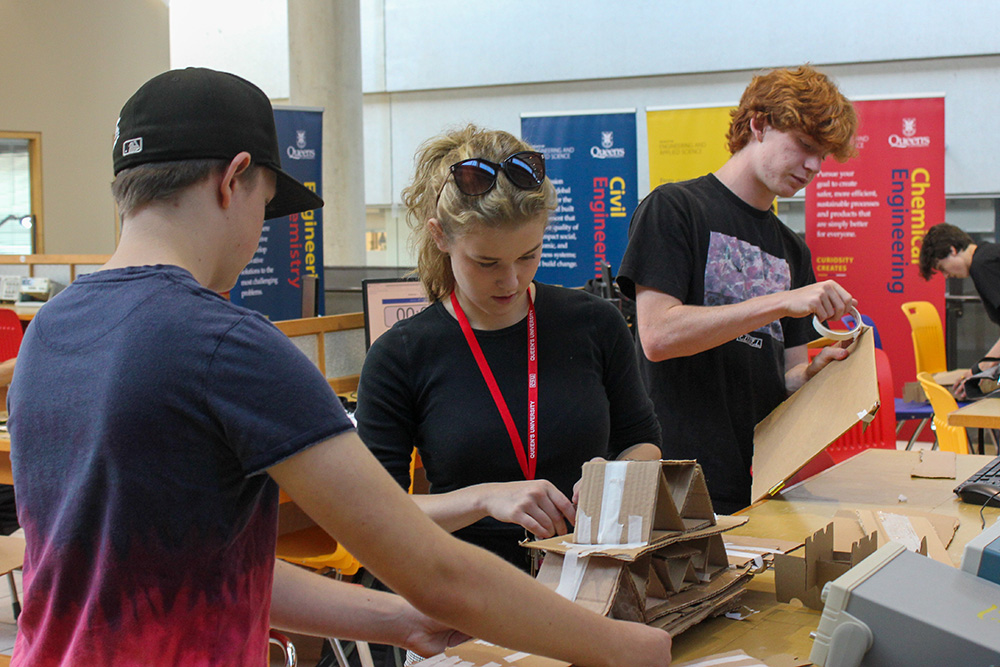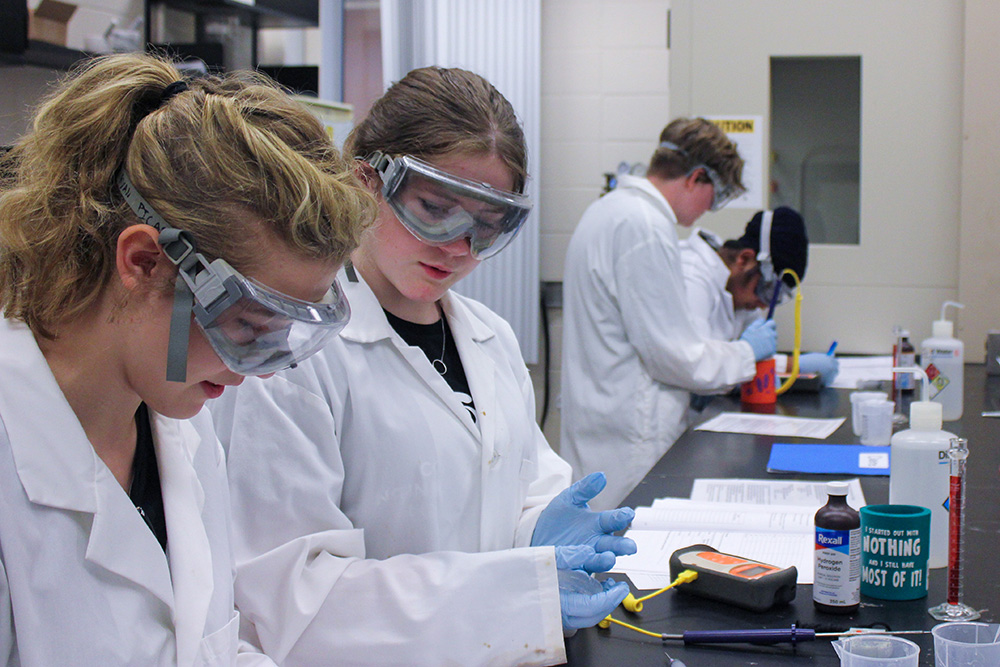The Queen’s Summer Engineering Academy (QSEA) is a hands-on experiential learning program that engages students in STEM concepts while demonstrating the many career paths that are available to engineers.
QSEA programs include a range of topics, from robotics to ecosystems and biomaterials to creating cities and waterways. Many programs are free, and bursaries are available for programs with fees. Students have access to world-class labs and the researchers who lead them.
“For students to really explore and understand the applications of engineering, we need to provide real world relevance,” says Scott Compeau, Manager of Connections Engineering Outreach. “To do that, we look at the big problems that we face in our world, such as climate change, and explore how engineers approach them.”
Grade four student Skye Graham found herself inspired by engineering biomaterials. “We’ve been learning about different things made out of biomaterials to help people,” she says. “We made a simple pair of lungs and a moving hand. Now that I’ve done this, I’m thinking that I really want to become an engineer.”
The QSEA Senior program for high school students offers students the opportunity to experience a university campus, spending a week in residence, eating in dining halls and taking part in social events after classes.
Audrey Frappier, a Queen’s engineering student and QSEA instructor, took the program when she was in high school. “I was pretty sure I wanted to pursue engineering in university, but I wasn’t really sure what it was all about,” she says. “I didn’t really have any experience in coding or 3D modelling, so QSEA helped exposed me to a lot of STEM software.”
One of the labs that supports the QSEA program is the Beaty Water Research Centre. Lab Director Ryan Mulligan says that part of the lab’s mandate is education and outreach. “Many students at the high school level think of engineering as things like electronics and mechanical engineering, but it’s so much broader than that,” he says. “Today they are here learning about water quality and other types of engineering that are very important, particularly as they are faced with news of climate change and other natural disasters that are impacting societies around the world.”
“By helping students see the real-world relevance and the context of what they are learning, it helps them to see how engineering applies to daily life,” says Compeau. “They really get a chance to see how engineering impacts every facet of society.”

